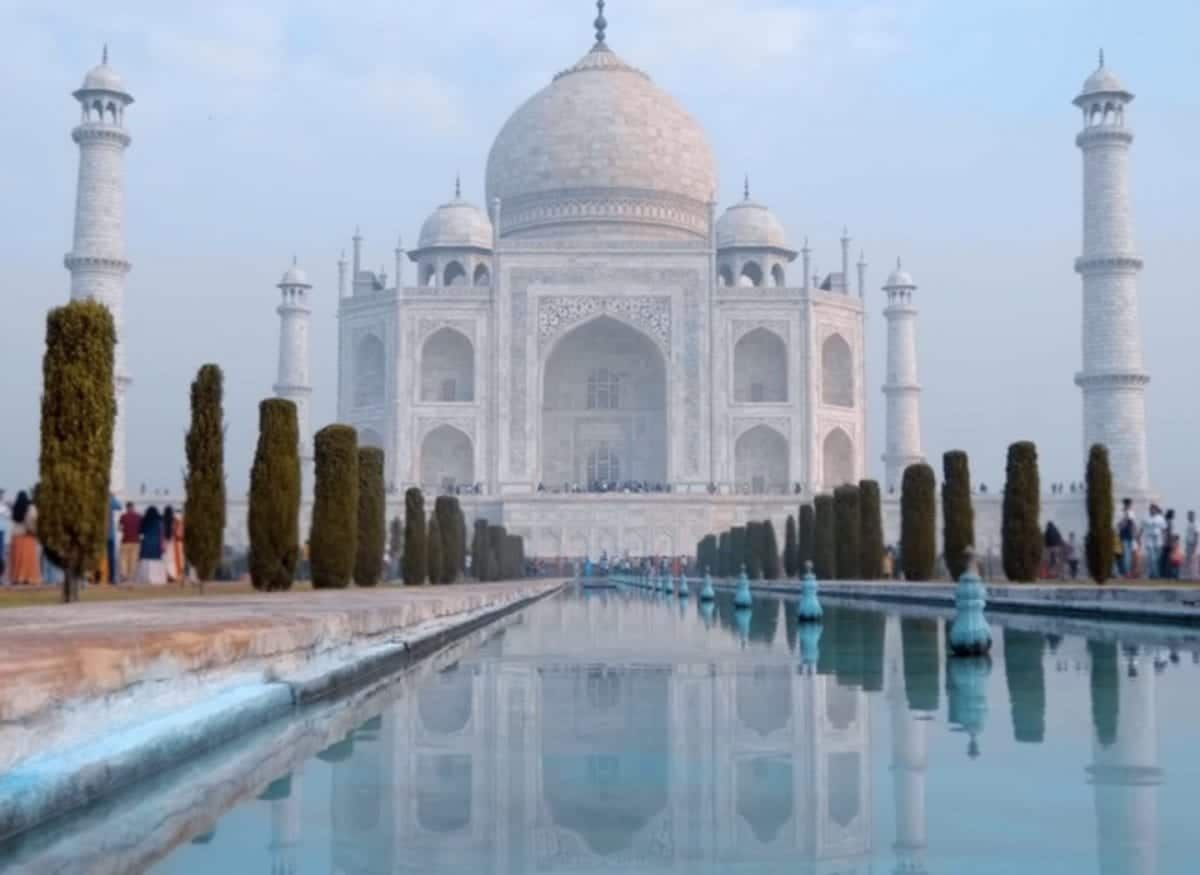I love you.
We use this phrase so easily these days, have you noticed? Influencers saying this to their audience of millions, rockstars hollering it to the large crowd gathered at their concerts, and vendors writing it to their customers (sometimes vice-versa too). It has almost become the new “Thank you”. I am thinking, that day is not far when employees’ offer letters and payslips will say “We love you”. Or even pink slips for that matter.
Dear so-and-so,
You are fired.
We love you,
HR
What does I-love-you mean? Perhaps, the most depicted, written about, and discussed topic in the world is love. And yet, it seems to me that we are forever struggling to understand or grasp the idea of love.
In fact, when I run out of topics to write, I pick relationships or love. There’s always something there. Just kidding, the idea of today’s post came to me when I was reading Chinese Thought by Jeff Barlow et al. (edited by Donald H. Bishop). 1
Getting back to the matter at hand, what is this thing called love, really? An intense emotion, a deep longing, an illusion, merely a transient infatuation, an act, just an expression or a name given to show how much the other person (or a crowd) means to you?
Only the awakened ones can love universally, I feel. The rest merely have what Mo Tzu called “graded love”. Think of a concentric circle representing various shades of love. The innermost circle may be your family (or him/herself in the case of a narcissistic person). As we move out, each circle represents love in decreasing intensity. The outermost circle may be your country or humanity at large. I wonder if love is mostly a name we give to our attachments. Hopefully, not.
Mo Tzu (470-391 BCE) and Wu Matse, two Chinese philosophers, were sipping tea and enjoying their opium on a beautiful winter afternoon when they touched upon the topic of love. (Not sure, if they were high on love or just high. Kidding…) 2
Mo Tzu tells Wu Matse that the ultimate, logical, and actual end of graded love is self-love. 3 That is, the person we love the most is us. And, paradoxically, self-love is a state where you are so fulfilled within that you love everyone equally. An unfulfilled person cannot love others abundantly, let alone equally. For, to give love, you’ve got to have it in you. Mo Tzu considers indiscriminate love as the only true love and that any kind of partiality is not only wrong but also the antithesis of love.
Wu Matse, however, disagrees and goes on to say:
“I differ from you. I cannot love universally… I love the members of my family better than the people of my district, my parents better than the other members of my family, and myself better than my parents. When I am beaten I feel pain. When they are beaten the pain does not extend to me. Why should I resist what does not give me pain but not resist what gives me pain? Therefore, I would rather have them killed to benefit me than to have me killed to benefit them.” 4
“Oh come on, Wu,” Mo Tzu says, accidentally drinking Wu Matse’s tea. “Anything less than universal love leads to self-love. When love is not universal, it is not love; in fact, it is simply selfishness. Even if it is on the level of the group and not just a single individual, it is still selfishness. One does not act virtuously, when he acts for himself or his group only. Virtue requires acting on the level of the universal or mankind.”
Wu Matse lifted his cup to have a sip before replying only to realize that it was empty. He gave Mo an angry look and said, “All right enough, let’s go and eat something now. Shall we?” 5
In my mind love has many shades. For example, when you first email a social acquaintance, you are formal. You will end with regards (sometimes, warm). As you shed the formalities, you start ending with “cheers” etc. With time when you start trusting the person and feel closer, your emails now end with “love”, followed by “lots of love”. Sometimes, it stops there.
But, if you experience that you actually like the person and they have won your trust, “lots of love” gradually changes to “love ya” or something similar. This is almost a cautious declaration and confession because you know that being in love is synonymous with being vulnerable. If the tête-à-tête continues and you find the other person not just likeable but lovable too, you start slipping in “love you for this” or “love you for that” here and there. There’s a lot of testing-the-water going on behind the scenes. Ah… the earthlings and their schemes. Now, if the other person starts reciprocating, you sign off your emails with “love you” eventually giving way to the more definitive “I love you.” From this moment on, the love between two people is a personal bond and it’ll ebb and flow with the vicissitudes of time.
Now then, if only Mo Tzu, Wu Matse, and their philosopher friends all over the world had access to big data and other insights into human behavior that most corporations have today, they wouldn’t have to rack their brains on something which is rather obvious: that is, love is nearness. 6
The nearness you experience, be it emotional, physical, or spiritual, represents the various shades of love. The person we love may be physically far from us, but if we feel a certain nearness to them, we are in love.
Don’t we say that two people have grown apart? Why? It’s because the erosion of love is nothing but the loss of nearness. It is why people get this sinking feeling in the stomach when they find out that their partner might be cheating on them. It’s not just a betrayal of trust but a crack in the nearness they once shared exclusively. That nearness now faces extinction in the worst-case scenario or a radical, and often painful, transformation at best.
“What if I die tomorrow?” Mulla Nasrudin‘s wife said to him.
“I’ll go crazy!” he held her hand and said. “Don’t even say such things.”
“Well, one day one of us will go,” she philosophized. “Do you think you’ll really go crazy or are you just saying that?”
“Of course, darling. I’m certain I’ll go crazy.”
“Are you saying you will never remarry?”
“I can’t promise that, sweetheart,” Mulla said. “You know that a crazy person is quite capable of doing crazy things.”
A peculiar attribute about love is that you can’t feel love unless you already have it in your heart. And, you can’t have love unless you give it.
The more you give it, the more the world will give it back to you. Therefore, at any rate, when it comes to leading a life full of love and contentment, it’s imperative that you are with people or engaged in things that lift your self-esteem. It’s only when you consider yourself worthy of love that you are able to fill yourself with love. And, your self-worth is directly proportional to your self-esteem. It is also the primary reason why spiritual texts tell you to turn inwards because doing so invariably means regaining your nearness with your “self”, which, I may add, is the purest and highest form of self-love.
The nearness you feel with anyone is the only true benchmark of love. It is why we are able to love God, ideologies, or even people we have never met. Nearness is love and love is nearness. See it any which way, and you will likely arrive at the same conclusion.
You know what else is love? os.me is love. It is evident in the posts written by our members and the loving engagements in discussions and comments. Thank you, really.
Love,
Swami
Time for Announcements!
1. I am very pleased to announce that in 2021, all live events are priced on honor-system. That is, they will be completely free and accessible to everyone on os.me/live. Based on the value you receive and affordability, you can pay whatever you like or nothing at all.
2. Join me every Tue (Hindi) and Fri (English) in March for a discourse. Plus, a live Zoom Satsang (meet) every Sun where we’ll be able to see each other and I’ll take live text questions. Not to mention the abhishekam on Mahashivaratri.
3. The complete schedule and other details are available on os.me/live.
Notes
A GOOD STORY
There were four members in a household. Everybody, Somebody, Anybody and Nobody. A bill was overdue. Everybody thought Somebody would do it. Anybody could have done it but Nobody did it.
Don't leave empty-handed, consider contributing.It's a good thing to do today.









Comments & Discussion
438 COMMENTS
Please login to read members' comments and participate in the discussion.